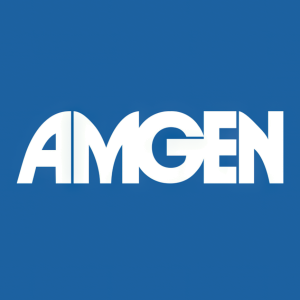FDA APPROVES TEZSPIRE® FOR CHRONIC RHINOSINUSITIS WITH NASAL POLYPS
Rhea-AI Summary
Amgen (NASDAQ:AMGN) and AstraZeneca announced FDA approval on October 17, 2025 of TEZSPIRE (tezepelumab-ekko) for add-on maintenance treatment of inadequately controlled chronic rhinosinusitis with nasal polyps (CRSwNP) in patients aged 12 years and older. TEZSPIRE is the first biologic for CRSwNP that targets thymic stromal lymphopoietin (TSLP). Approval was supported by the WAYPOINT Phase III trial, which showed a statistically significant reduction in nasal polyp severity, near-elimination of the need for surgery, and significant reduction in systemic corticosteroid use versus placebo. Safety was described as generally consistent with the drug's established severe asthma profile. Regulatory applications are under review in Europe, China, Japan and other countries.
Positive
- FDA approval for CRSwNP granted on October 17, 2025
- Indication expanded to patients aged 12 years and older
- First TSLP-targeting biologic approved for CRSwNP
- WAYPOINT Phase III showed near-elimination of surgery need versus placebo
- WAYPOINT Phase III showed significant reduction in systemic corticosteroid use
Negative
- Most frequent adverse events included COVID-19, nasopharyngitis, upper respiratory infection
- Hypersensitivity reactions observed; postmarketing anaphylaxis reported
- Live attenuated vaccines should be avoided while receiving TEZSPIRE
- No available data on TEZSPIRE use in pregnant women; third-trimester transfer noted
Insights
FDA approval of TEZSPIRE for CRSwNP extends its clinical reach and creates a new biologic option that reduced surgeries and steroid use in Phase III data.
By securing an additional FDA indication on
Clinical uptake and commercial impact will depend on real-world prescribing patterns, payer coverage, and patient identification; these factors carry uncertainty since the release provides no cost, utilization, or label-restricted population details. Safety appeared consistent with the existing asthma profile, with common adverse events listed as COVID-19, nasopharyngitis and upper respiratory infection.
Watch regulatory decisions in Europe, China and Japan and adoption metrics over the next 6–24 months, plus any payer policy statements and real-world data on surgery avoidance and steroid-sparing durability reported after broader use.
Approval Broadens Indication for TEZSPIRE to a Second Disease Characterized by Epithelial-Driven Inflammation
CRSwNP affects up to approximately 320 million people worldwide and is a complex epithelial-driven inflammatory condition characterized by persistent inflammation and benign polyp growths within the nasal cavity.1-5 People living with CRSwNP commonly experience airflow obstruction and symptoms including congestion and an impaired sense of smell.1-5 For many patients, current therapies such as systemic and intranasal corticosteroids and repeated sinus surgeries do not offer lasting relief.3
"For people living with CRSwNP, every breath can feel like a struggle, and many endure years of recurring symptoms and surgeries without significant relief. The approval of TEZSPIRE represents a meaningful advance, derived from our longstanding focus on complex inflammatory diseases rooted in epithelial biology," said Jay Bradner, M.D., executive vice president of Research and Development at Amgen. "This approval is an important step forward for patients who have long needed more durable options that address the root causes of this disease, while establishing the impact of TSLP inhibition beyond asthma."
The approval by the Food and Drug Administration (FDA) was based on efficacy and safety data from the WAYPOINT Phase III trial, which were presented at the 2025 American Academy of Allergy Asthma & Immunology (AAAAI)/World Allergy Organization (WAO) Joint Congress and simultaneously published in The New England Journal of Medicine.6,7 In the trial, TEZSPIRE demonstrated a statistically significant and clinically meaningful reduction in nasal polyp severity and showed near-elimination of the need for surgery and significant reduction in systemic corticosteroid use vs. placebo.
"Over 320 million lives globally are disrupted by chronic rhinosinusitis with nasal polyps. The FDA approval of TEZSPIRE brings forward a new treatment option that has demonstrated rapid and sustained symptom improvement, nearly eliminating the need for future surgeries and significantly reducing systemic steroid use," said Dr. Joseph Han, Vice Chair of Department of Otolaryngology – Head and Neck Surgery, Old Dominion University, and co-primary investigator of the WAYPOINT trial. "By targeting thymic stromal lymphopoietin (TSLP) at the top of the inflammatory cascade, TEZSPIRE offers a novel option for patients who continue to endure the disruption of this disease despite available treatments."
"Chronic rhinosinusitis with nasal polyps is a persistent and often-overlooked disease that can significantly impact daily life, robbing patients of their ability to breathe without congestion and full sense of smell," said Kenneth Mendez, President and CEO of the Asthma and Allergy Foundation of America (AAFA). "This approval introduces an innovative treatment option for patients with the potential to help address the ongoing cycle of debilitating symptoms, surgeries and systemic steroid use."
The safety and tolerability profile of TEZSPIRE in the WAYPOINT trial was generally consistent with its established profile in severe asthma.6 The most frequently reported adverse events in the trial were COVID-19, nasopharyngitis and upper respiratory tract infection.6
Regulatory applications are currently under review in
TEZSPIRE® (tezepelumab-ekko)
TEZSPIRE is indicated for:
- the add-on maintenance treatment of adult and pediatric patients aged 12 years and older with severe asthma. TEZSPIRE is not indicated for the relief of acute bronchospasm or status asthmaticus.
- the add-on maintenance treatment of adult and pediatric patients aged 12 years and older with inadequately controlled chronic rhinosinusitis with nasal polyps (CRSwNP).
TEZSPIRE® (tezepelumab-ekko) Important Safety Information
CONTRAINDICATIONS
Known hypersensitivity to tezepelumab-ekko or excipients.
WARNINGS AND PRECAUTIONS
Hypersensitivity Reactions
Hypersensitivity reactions were observed in the clinical trials (e.g., rash and allergic conjunctivitis) following the administration of TEZSPIRE. Postmarketing cases of anaphylaxis have been reported. These reactions can occur within hours of administration, but in some instances have a delayed onset (i.e., days). In the event of a hypersensitivity reaction, consider the benefits and risks for the individual patient to determine whether to continue or discontinue treatment with TEZSPIRE.
Acute Asthma Symptoms or Deteriorating Disease
TEZSPIRE should not be used to treat acute asthma symptoms, acute exacerbations, acute bronchospasm, or status asthmaticus.
Abrupt Reduction of Corticosteroid Dosage
Do not discontinue systemic or inhaled corticosteroids abruptly upon initiation of therapy with TEZSPIRE. Reductions in corticosteroid dose, if appropriate, should be gradual and performed under the direct supervision of a physician. Reduction in corticosteroid dose may be associated with systemic withdrawal symptoms and/or unmask conditions previously suppressed by systemic corticosteroid therapy.
Parasitic (Helminth) Infection
It is unknown if TEZSPIRE will influence a patient's response against helminth infections. Treat patients with pre-existing helminth infections before initiating therapy with TEZSPIRE. If patients become infected while receiving TEZSPIRE and do not respond to anti-helminth treatment, discontinue TEZSPIRE until infection resolves.
Live Attenuated Vaccines
The concomitant use of TEZSPIRE and live attenuated vaccines has not been evaluated. The use of live attenuated vaccines should be avoided in patients receiving TEZSPIRE.
ADVERSE REACTIONS
The most common adverse reactions (incidence ≥
- Asthma: pharyngitis, arthralgia, and back pain.
- Chronic rhinosinusitis with nasal polyps: nasopharyngitis, upper respiratory tract infection, epistaxis, pharyngitis, back pain, influenza, injection site reaction and arthralgia.
USE IN SPECIFIC POPULATIONS
There are no available data on TEZSPIRE use in pregnant women to evaluate for any drug-associated risk of major birth defects, miscarriage, or other adverse maternal or fetal outcomes. Placental transfer of monoclonal antibodies such as tezepelumab-ekko is greater during the third trimester of pregnancy; therefore, potential effects on a fetus are likely to be greater during the third trimester of pregnancy.
Please see the full Prescribing Information including Patient Information and Instructions for Use.
You may report side effects related to AstraZeneca products by clicking here .
About TEZSPIRE® (tezepelumab-ekko)
TEZSPIRE is a first-in-class human monoclonal antibody that works on the primary source of inflammation: the airway epithelium, which is the first point of contact for viruses, allergens, pollutants and other environmental triggers and insults. Specifically, TEZSPIRE targets and blocks TSLP, a key epithelial cytokine that sits at the top of multiple inflammatory cascades and initiates an overreactive immune response to allergic, eosinophilic and other types of airway inflammation associated with severe asthma.8, 9 TSLP is released in response to multiple triggers associated with asthma exacerbations, including allergens, viruses and other airborne particles.9,10
Expression of TSLP is increased in the airways of patients with asthma and has been correlated with disease severity.5,8 Blocking TSLP may prevent the release of pro-inflammatory cytokines by immune cells, resulting in the prevention of asthma exacerbations and improved asthma control.8,9,11
TEZSPIRE is currently approved as a pre-filled, single-use pen and auto-injector for self-administration for the treatment of severe asthma in the U.S., Europe, Japan, and more than 60 countries across the globe,12-15 and for the treatment of chronic rhinosinusitis with nasal polyps in the U.S.
Beyond severe asthma and CRSwNP, TEZSPIRE is also in development for other potential indications including chronic obstructive pulmonary disease (COPD) and eosinophilic esophagitis (EoE).16,17 In October 2021, tezepelumab was granted Orphan Drug Designation by the FDA for the treatment of EoE.
About Chronic Rhinosinusitis with Nasal Polyps (CRSwNP [nasal polyps])
CRSwNP is a complex inflammatory disorder characterized by persistent inflammation of the nasal mucosa accompanied by benign growths, called nasal polyps.2,3 Nasal polyps can block nasal passages and lead to breathing problems, difficulty in sense of smell, nasal discharge, and other adverse effects on quality of life.1,4,5
Epithelial dysfunction and inflammation are important characteristics of chronic rhinosinusitis and impede the ability of the epithelium to act as a physical and immunological barrier against the external environment.18 Estimates suggest that up to
Current treatments for CRSwNP include intranasal and/or systemic corticosteroids, surgery and biologic medication.3,5,21-26
About the Phase 3 WAYPOINT Trial
WAYPOINT was a double-blind, multi-center, randomized, placebo-controlled, parallel group trial designed to evaluate the efficacy and safety of tezepelumab in adults with uncontrolled CRSwNP.6,7,27 Participants received tezepelumab or placebo, administered via subcutaneous injection. The trial also included a post-treatment follow-up period of 12-24 weeks for participants who completed the 52-week treatment period.6,7,27
The co-primary endpoints of the trial, were change from baseline in total nasal polyp size, measured by the endoscopic total Nasal Polyp Score, and change from baseline in bi-weekly mean nasal congestion, measured by the participant reported Nasal Congestion Score evaluated as part of the daily Nasal Polyposis Symptom Diary.6,27 Key secondary endpoints included loss of smell; improvement in disease specific health-related quality of life as measured by SinoNasal Outcome Test (SNOT-22) score;
About the Amgen and AstraZeneca Collaboration
In 2020, Amgen and AstraZeneca updated the 2012 collaboration agreement for TEZSPIRE. Both companies will continue to share costs and profits equally after payment by AstraZeneca of a mid-single-digit royalty to Amgen. AstraZeneca continues to lead development and Amgen continues to lead manufacturing. All aspects of the collaboration are under the oversight of joint governing bodies. Under the amended agreement, in North America, Amgen, as the principal, recognizes product sales of TEZSPIRE in the
About Amgen
Amgen discovers, develops, manufactures and delivers innovative medicines to help millions of patients in their fight against some of the world's toughest diseases. More than 40 years ago, Amgen helped to establish the biotechnology industry and remains on the cutting-edge of innovation, using technology and human genetic data to push beyond what's known today. Amgen is advancing a broad and deep pipeline that builds on its existing portfolio of medicines to treat cancer, heart disease, osteoporosis, inflammatory diseases and rare diseases.
In 2024, Amgen was named one of the "World's Most Innovative Companies" by Fast Company and one of "America's Best Large Employers" by Forbes, among other external recognitions. Amgen is one of the 30 companies that comprise the Dow Jones Industrial Average®, and it is also part of the Nasdaq-100 Index®, which includes the largest and most innovative non-financial companies listed on the Nasdaq Stock Market based on market capitalization.
For more information, visit Amgen.com and follow Amgen on X, LinkedIn, Instagram, YouTube and Threads.
Amgen Forward-Looking Statements
This news release contains forward-looking statements that are based on the current expectations and beliefs of Amgen. All statements, other than statements of historical fact, are statements that could be deemed forward-looking statements, including any statements on the outcome, benefits and synergies of collaborations, or potential collaborations, with any other company (including BeOne Medicines Ltd. or Kyowa Kirin Co., Ltd.), the performance of Otezla® (apremilast), our acquisitions of ChemoCentryx, Inc. or Horizon Therapeutics plc (including the prospective performance and outlook of Horizon's business, performance and opportunities, and any potential strategic benefits, synergies or opportunities expected as a result of such acquisition), as well as estimates of revenues, operating margins, capital expenditures, cash, other financial metrics, expected legal, arbitration, political, regulatory or clinical results or practices, customer and prescriber patterns or practices, reimbursement activities and outcomes, effects of pandemics or other widespread health problems on our business, outcomes, progress, and other such estimates and results. Forward-looking statements involve significant risks and uncertainties, including those discussed below and more fully described in the Securities and Exchange Commission reports filed by Amgen, including our most recent annual report on Form 10-K and any subsequent periodic reports on Form 10-Q and current reports on Form 8-K. Unless otherwise noted, Amgen is providing this information as of the date of this news release and does not undertake any obligation to update any forward-looking statements contained in this document as a result of new information, future events or otherwise.
No forward-looking statement can be guaranteed and actual results may differ materially from those we project. Discovery or identification of new product candidates or development of new indications for existing products cannot be guaranteed and movement from concept to product is uncertain; consequently, there can be no guarantee that any particular product candidate or development of a new indication for an existing product will be successful and become a commercial product. Further, preclinical results do not guarantee safe and effective performance of product candidates in humans. The complexity of the human body cannot be perfectly, or sometimes, even adequately modeled by computer or cell culture systems or animal models. The length of time that it takes for us to complete clinical trials and obtain regulatory approval for product marketing has in the past varied and we expect similar variability in the future. Even when clinical trials are successful, regulatory authorities may question the sufficiency for approval of the trial endpoints we have selected. We develop product candidates internally and through licensing collaborations, partnerships and joint ventures. Product candidates that are derived from relationships may be subject to disputes between the parties or may prove to be not as effective or as safe as we may have believed at the time of entering into such relationship. Also, we or others could identify safety, side effects or manufacturing problems with our products, including our devices, after they are on the market.
Our results may be affected by our ability to successfully market both new and existing products domestically and internationally, clinical and regulatory developments involving current and future products, sales growth of recently launched products, competition from other products including biosimilars, difficulties or delays in manufacturing our products and global economic conditions, including those resulting from geopolitical relations and government actions. In addition, sales of our products are affected by pricing pressure, political and public scrutiny and reimbursement policies imposed by third-party payers, including governments, private insurance plans and managed care providers and may be affected by regulatory, clinical and guideline developments and domestic and international trends toward managed care and healthcare cost containment. Furthermore, our research, testing, pricing, marketing and other operations are subject to extensive regulation by domestic and foreign government regulatory authorities. Our business may be impacted by government investigations, litigation and product liability claims. In addition, our business may be impacted by the adoption of new tax legislation or exposure to additional tax liabilities. Further, while we routinely obtain patents for our products and technology, the protection offered by our patents and patent applications may be challenged, invalidated or circumvented by our competitors, or we may fail to prevail in present and future intellectual property litigation. We perform a substantial amount of our commercial manufacturing activities at a few key facilities, including in
CONTACT: Amgen,
George Shea, 202-531-7364 (media)
Elissa Snook, 609-251-1407 (media)
Adam Elinoff, 805-313-9775 (investors)
REFERENCES
- Stevens WW, et al. Chronic Rhinosinusitis with Nasal Polyps. J Allergy Clin Immunol Pract. 2016; 4 (4): 565-572.
- Bachert C, et al. Phenotypes and Emerging Endotypes of Chronic Rhinosinusitis. J Allergy Clin Immunol Pract. 2016; 4 (4): 621-628.
- Del Toro E, Portela J. Nasal Polyps. [Updated 2023 Jul 31]. In: StatPearls [Internet].
Treasure Island (FL): StatPearls Publishing; 2024 Jan. Available from: https://www.ncbi.nlm.nih.gov/books/NBK560746/ [Last accessed: August 2025]. - Abdalla S, et al. Prevalence of sinonasal outcome test (SNOT-22) symptoms in patients undergoing surgery for chronic rhinosinusitis in the
England and Wales National prospective audit. Clin Otolaryngol. 2012; 37 (4): 276-282. - Chen S, et al. Systematic literature review of the epidemiology and clinical burden of chronic rhinosinusitis with nasal polyposis. Curr Med Res Opin. 2020;36(11):1897-1911.
- Lipworth, BJ, Han JK, et al. Tezepelumab in adults with severe, uncontrolled CRSwNP. N Engl J Med. 2025.
- Lipworth, BJ, Han JK, et al. Efficacy and safety of tezepelumab in adults with severe chronic rhinosinusitis with nasal polyps: results from the Phase 3 WAYPOINT Study. [Late breaking oral presentation]. Presented at the American Academy of Allergy, Asthma & Immunology/World Allergy Organization Joint Congress 2025 (28 February – 03 March).
- Corren J, et al. Tezepelumab in adults with uncontrolled asthma. N Engl J Med. 2017;377:936-946.
- Varricchi G, et al. Thymic Stromal Lymphopoietin Isoforms, Inflammatory Disorders, and Cancer. Front Immunol. 2018;9:1595.
- Menzies-Gow A, et al. Tezepelumab in Adults and Adolescents with Severe, Uncontrolled Asthma. N Engl J Med. 2021;384:1800-1809.
- Li Y, et al. Elevated Expression of IL-33 and TSLP in the Airways of Human Asthmatics In Vivo: A Potential Biomarker of Severe Refractory Disease. J Immunol. 2018; 200: 2253–2262.
- TEZSPIRE (tezepelumab) US prescribing information. Available at: https://www.accessdata.fda.gov/drugsatfda_docs/label/2023/761224s003lbl.pdf. [Last accessed: August 2025].
- TEZSPIRE (tezepelumab) Summary of Product Characteristics. Available at: https://www.ema.europa.eu/en/documents/product-information/tezspire-epar-product-information_en.pdf. [Last accessed: August 2025].
- AstraZeneca plc. TEZSPIRE approved in
Japan for the treatment of severe asthma. Available at: https://www.astrazeneca.com/media-centre/press-releases/2022/tezspire-approved-in-japan-for-severe-asthma.html. [Last accessed: August 2025]. - Data on File. AstraZeneca. 2024. REF-251231.
- Clinicaltrials.gov. Tezepelumab COPD Exacerbation Study (COURSE) [Online]. Available at: https://clinicaltrials.gov/ct2/show/NCT04039113. [Last accessed: August 2025].
- Clinicaltrials.gov. Efficacy and Safety of Tezepelumab in Patients with Eosinophilic Esophagitis (CROSSING). Available at: https://clinicaltrials.gov/study/NCT05583227?rank=1. [Last accessed: August 2025].
- Wynne M, et al. Contribution of epithelial cell dysfunction to the pathogenesis of chronic rhinosinusitis with nasal polyps. Am J Rhinol Allergy. 2019;33:782–790.
- Laidlaw TM, et al. Chronic Rhinosinusitis with nasal polyps and asthma. J Allergy Clin Immunol Pract 2021;9:1133–1141.
- Liao B, et al. Interaction of thymic stromal lymphopoietin, IL-33, and their receptors in epithelial cells in eosinophilic chronic rhinosinusitis with nasal polyps. Allergy. 2015;70:1169–1180.
- Xolair (omalizumab) Summary of Product Characteristics; Available at: https://www.ema.europa.eu/en/documents/product-information/xolair-epar-product-information_en.pdf. [Last accessed: August 2025].
- Xolair (omalizumab) US prescribing information; Available at: https://www.gene.com/download/pdf/xolair_prescribing.pdf. [Last accessed: August 2025].
- Nucala (mepolizumab) Summary of Product Characteristics. Available at: https:// www.ema.europa.eu/en/documents/product-information/nucala-epar-product-information_en.pdf. [Last accessed: August 2025].
- Nucala (mepolizumab) US prescribing information; Available at: https://www.accessdata.fda.gov/drugsatfda_docs/label/2021/761122s006,125526s018lbl.pdf. [Last accessed: August 2025].
- Dupixent (dupilumab) Summary of Product Characteristics. Available at: https://www.ema.europa.eu/en/documents/product-information/dupixent-epar-product-information_en.pdf. [Last accessed: August 2025].
- Dupixent (dupilumab) US prescribing information; Available at: https://www.regeneron.com/downloads/dupixent_fpi.pdf. [Last accessed: August 2025].
- Clinicaltrials.gov. Efficacy and Safety of Tezepelumab in Participants With Severe Chronic Rhinosinusitis With Nasal Polyposis (WAYPOINT). Available at: https://clinicaltrials.gov/ct2/show/NCT04851964. [Last accessed: August 2025].
![]() View original content to download multimedia:https://www.prnewswire.com/news-releases/fda-approves-tezspire-for-chronic-rhinosinusitis-with-nasal-polyps-302587969.html
View original content to download multimedia:https://www.prnewswire.com/news-releases/fda-approves-tezspire-for-chronic-rhinosinusitis-with-nasal-polyps-302587969.html
SOURCE Amgen








